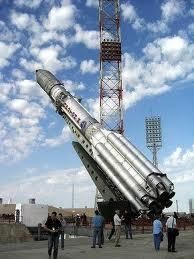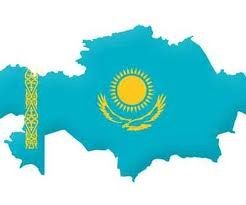The Kremlin Strategy in Baikonur: Putting Kazakhstan’s Space Program in a Box?
BISHKEK (TCA) — Although Kazakhstan has big plans to develop its own aerospace industry, such plans are heavily dependent on Russia, which is leasing the country’s Baikonur Cosmodrome until 2050. We are republishing this article on the issue by Anna Gussarova, originally published by The Jamestown Foundation’s Eurasia Daily Monitor: Russia has pledged to transfer 44.8 square miles of Baikonur Cosmodrome territory and two Zenit-M rocket launch platforms to Kazakhstan by the end of May 2018 (Iz.ru, March 1). This became possible thanks to the recent amendments to the lease agreement between the two countries, which was concluded this March, following years of negotiations. Several important conclusions can be drawn from this development. Baikonur is of particular importance both to Russia and Kazakhstan. The latter has set ambitious goals to become a space power by the end of May 2018 (Abctv.kz, March 2). Although Kazakhstan is host to the world’s largest cosmodrome, until now the country has never possessed its own space launch infrastructure as Baikonur has been leased entirely by Russia since the collapse of the Soviet Union. Russia will continue to lease Baikonur—minus the aforementioned transferred portions—for $115 million annually until 2050. Even though the Kazakhstani government has high expectations regarding the country’s space capabilities, the specific impact and benefits are more difficult to gauge at this point. Nonetheless, Kazakhstan’s recently established Ministry of Defense and Aerospace Industry is working to outline Kazakhstan’s strategic interests and goals in the space domain. Kazakhstani-Russian cooperation on Baikonur has long been problematic. For instance, in early 2004, Presidents Vladimir Putin and Nursultan Nazarbayev agreed to start the Baiterek project that would result in the construction of a joint space launch complex for the Angara rocket (365info.kz, December 14, 2016). But financial disagreements and multiple delays eventually made this joint project impossible to implement. Other bilateral disputes related to Russia’s space program activities on Kazakhstani soil include environmental, health and tax issues (see EDM, June 10, 2015; June 21, 2017). Currently, the division of labor between Kazakhstan and Russia at Baikonur looks quite peculiar. On the one hand, the Kazakhstani government will now possess its own launch platforms. But in reality, the only opportunity for the country to use this Zenit-M ground infrastructure will be to participate in joint projects with Russia, which owns and operates the actual rockets for these launch complexes (Tengrinews.kz, March 2). Specifically, these facilities will be used to launch the new Russian Soyuz-5 rockets. Thus, two countries agreed that Russia plans to develop the Soyuz-5 and Kazakhstan will be in charge of modernizing the older Zenit rockets. The feasibility study of upgrading the infrastructure at Baikonur is still ongoing. But according to estimates, the modernization of the Zenit launch pads will cost the Kazakhstani budget approximately $245 million (24.kz, September 14, 2017). The idea for the new Soyuz-5 was born out of Russia’s need to pursue an import-substitution strategy as a result of Western sanctions and Russian counter-sanctions following the Kremlin’s aggression against Ukraine in 2014. The...


